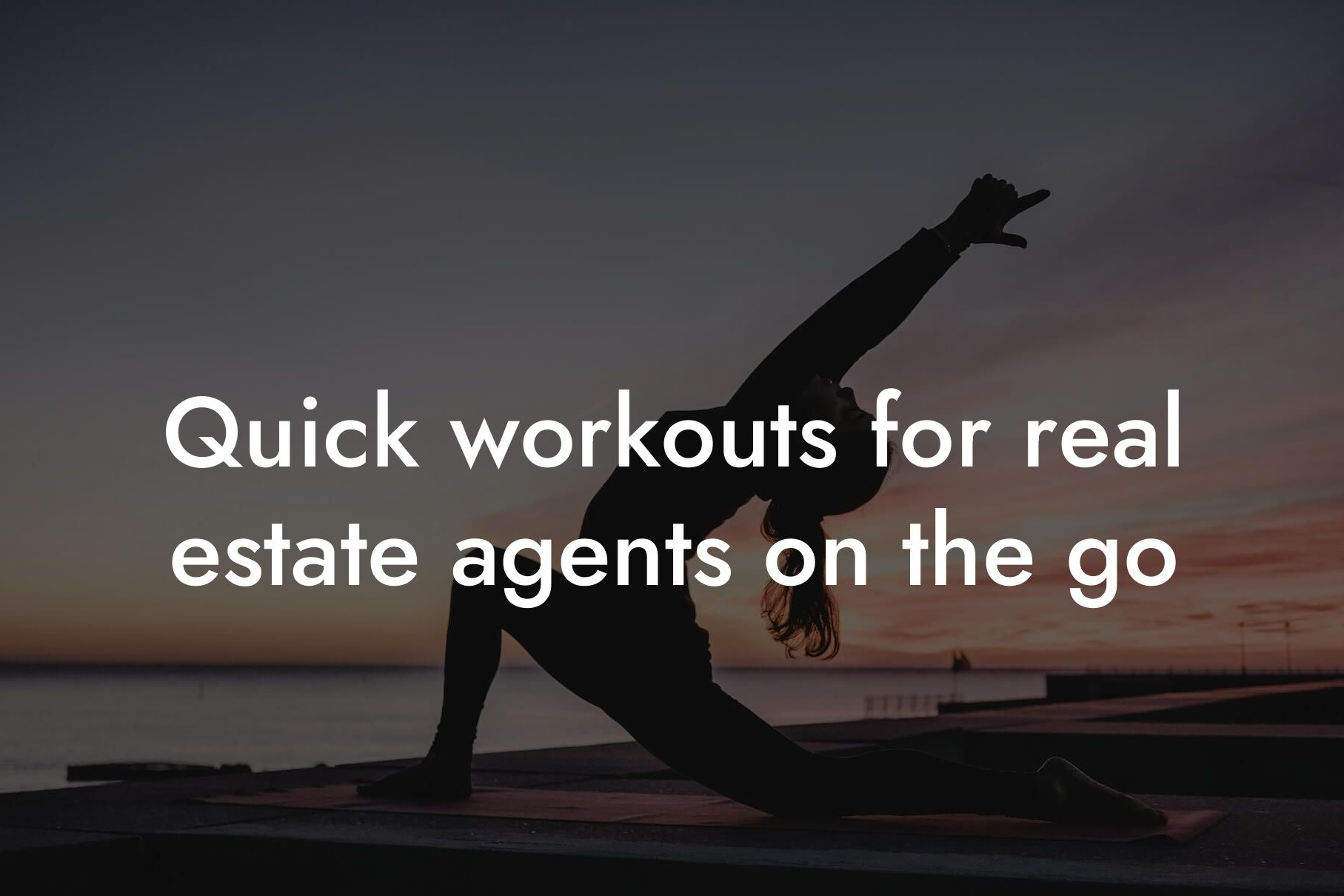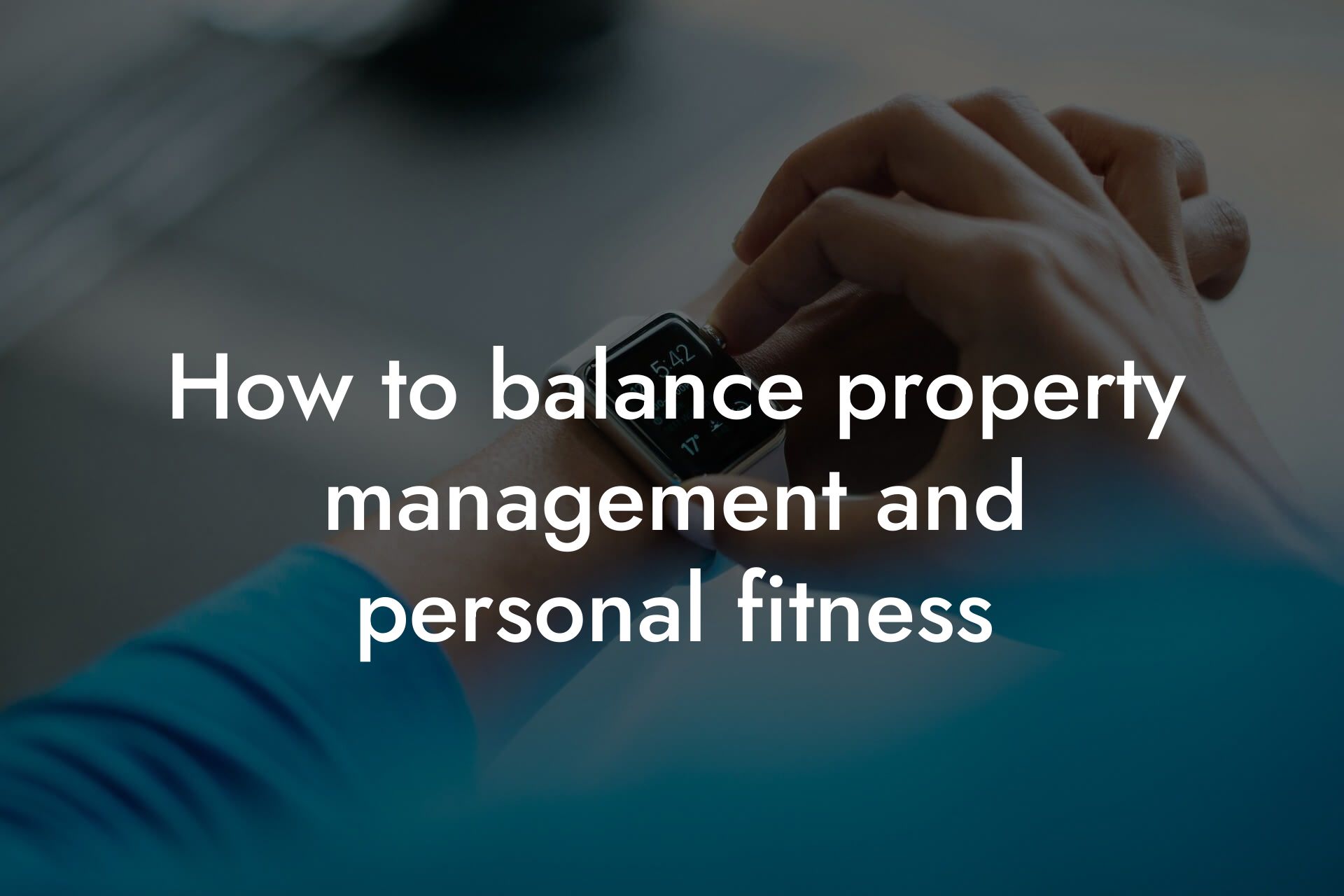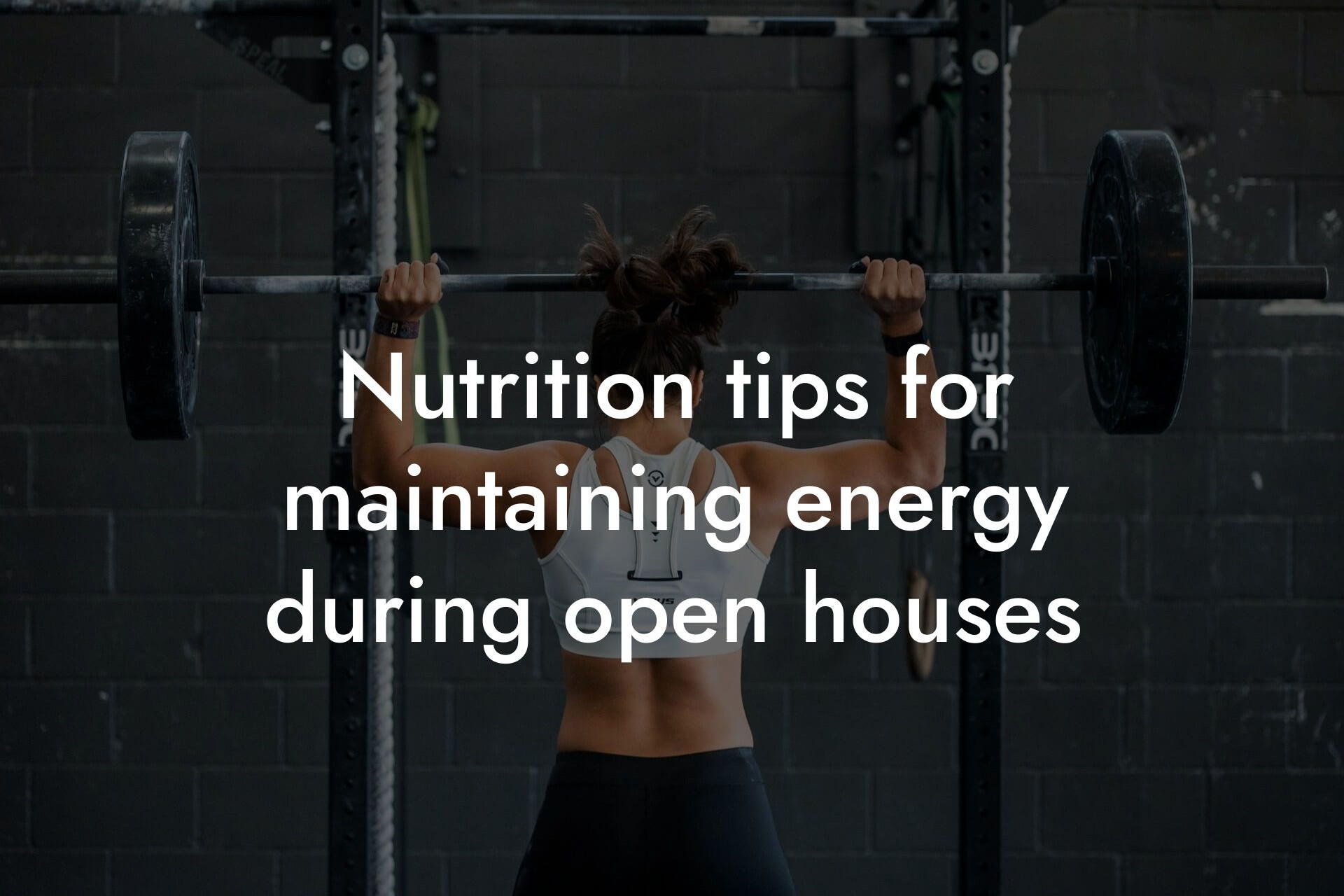As a real estate professional, you understand the importance of being at the top of your game to succeed in this competitive industry. While many factors contribute to success, one often overlooked aspect is physical fitness. In this article, we'll explore the significant impact physical fitness has on real estate sales success and provide actionable tips to help you get started.
Table of Contents
- Why Physical Fitness Matters in Real Estate
- The Science Behind Physical Fitness and Brain Function
- How Physical Fitness Impacts Real Estate Sales Performance
- Common Physical Fitness Challenges in Real Estate
- Overcoming Physical Fitness Challenges in Real Estate
- How DEXA Scans Can Help Real Estate Professionals
- Frequently Asked Questions
Why Physical Fitness Matters in Real Estate
Real estate sales is a demanding profession that requires energy, stamina, and mental acuity. Long hours, frequent travel, and high-pressure negotiations can take a toll on your body and mind. Physical fitness is essential to maintaining the high level of performance required to succeed in this field. When you're physically fit, you're more likely to:
- Have increased energy levels to tackle long days and multiple showings
- Improve your mental clarity and focus to negotiate deals effectively
- Enhance your confidence and self-esteem to build strong relationships with clients
- Reduce stress and anxiety to make better decisions under pressure
The Science Behind Physical Fitness and Brain Function
Research has shown that regular exercise improves cognitive function, including memory, attention, and processing speed. Physical fitness has been linked to increased production of brain-derived neurotrophic factor (BDNF), a protein that promotes the growth and survival of brain cells. This means that regular exercise can:
- Improve your ability to learn and remember new information
- Enhance your creativity and problem-solving skills
- Boost your mood and reduce symptoms of depression and anxiety
How Physical Fitness Impacts Real Estate Sales Performance
A study by the National Association of Realtors found that top-performing real estate agents reported higher levels of physical activity compared to lower-performing agents. This correlation is not coincidental. Physical fitness can directly impact your sales performance by:
- Increasing your stamina to handle multiple showings and open houses
- Improving your communication skills to effectively negotiate deals
- Enhancing your creativity to think outside the box and find innovative solutions
- Boosting your confidence to take on more listings and close more deals
Common Physical Fitness Challenges in Real Estate
As a real estate professional, you may face unique physical fitness challenges, such as:
- Long hours spent sitting at a desk or driving between showings
- Unpredictable schedules that make it difficult to maintain a consistent workout routine
- High-stress environments that can lead to poor eating habits and lack of self-care
Overcoming Physical Fitness Challenges in Real Estate
Despite these challenges, there are many ways to prioritize physical fitness as a real estate professional. Here are some actionable tips to get you started:
- Start small: Begin with short, 10-15 minute workouts during your lunch break or between showings
- Find activities you enjoy: Engage in physical activities that bring you joy, such as walking, yoga, or swimming
- Schedule it in: Treat your workout routine as non-negotiable appointments with yourself
- Make healthy choices: Prioritize whole, nutrient-dense foods and limit your intake of processed snacks and sugary drinks
How DEXA Scans Can Help Real Estate Professionals
At Tano Performance Group, we understand the importance of physical fitness in real estate sales success. That's why we offer comprehensive DEXA scans to help you optimize your body composition and overall health. Our DEXA scans provide detailed information on:
- Body fat percentage and distribution
- Bone density and osteoporosis risk
- Lean muscle mass and muscle imbalances
- Visceral fat and metabolic health
In conclusion, physical fitness plays a critical role in real estate sales success. By prioritizing your physical health, you can improve your mental acuity, increase your energy levels, and enhance your overall performance. Remember, small changes can add up over time. Start by incorporating short workouts into your daily routine, making healthy food choices, and scheduling regular DEXA scans to track your progress. With time and dedication, you can take your real estate sales career to the next level.
Frequently Asked Questions
What is the connection between physical fitness and real estate sales success?
Physical fitness plays a significant role in real estate sales success as it directly impacts an agent's energy levels, confidence, and overall well-being. When agents are physically fit, they are better equipped to handle the demands of the job, including long hours, heavy workloads, and high-pressure situations. This, in turn, can lead to increased productivity, better client relationships, and ultimately, more sales.
How does physical fitness affect a real estate agent's energy levels?
Regular exercise and a healthy diet can significantly boost a real estate agent's energy levels, allowing them to tackle the demands of the job with enthusiasm and vigor. When agents are physically fit, they are less likely to experience fatigue, which can lead to decreased productivity and a lack of motivation.
Can physical fitness really improve a real estate agent's confidence?
Absolutely! Physical fitness can have a profound impact on a person's self-confidence. When agents feel physically fit and healthy, they are more likely to exude confidence, which can be a major differentiator in the competitive world of real estate sales. Confident agents are more likely to take risks, negotiate effectively, and close deals.
How does physical fitness impact a real estate agent's mental health?
Physical fitness has been shown to have a positive impact on mental health, reducing symptoms of anxiety and depression. Real estate agents who are physically fit are better equipped to handle the stresses of the job, including rejection, long hours, and high-pressure situations.
What are some common physical fitness challenges faced by real estate agents?
Real estate agents often face unique physical fitness challenges, including long hours spent sitting, irregular schedules, and high levels of stress. Additionally, agents may struggle to find time to exercise and prioritize their physical health amidst a demanding work schedule.
How can real estate agents overcome these physical fitness challenges?
Real estate agents can overcome physical fitness challenges by prioritizing their health, finding creative ways to stay active, and making healthy lifestyle choices. This might include scheduling exercise into their daily routine, finding workout buddies, or incorporating physical activity into their workday, such as taking a walk during lunch breaks.
What are some effective ways for real estate agents to stay physically active?
There are many effective ways for real estate agents to stay physically active, including joining a gym, taking fitness classes, or finding outdoor activities they enjoy, such as hiking or cycling. Agents can also incorporate physical activity into their daily routine, such as taking the stairs instead of the elevator or going for a walk during breaks.
How does physical fitness impact a real estate agent's ability to build relationships with clients?
Physical fitness can have a significant impact on a real estate agent's ability to build relationships with clients. When agents are physically fit, they are more likely to exude confidence, energy, and enthusiasm, which can help build trust and rapport with clients.
Can physical fitness really improve a real estate agent's negotiation skills?
Yes! Physical fitness can improve a real estate agent's negotiation skills by increasing their confidence, focus, and mental clarity. When agents are physically fit, they are better equipped to think on their feet, stay calm under pressure, and negotiate effectively.
How does physical fitness impact a real estate agent's ability to handle rejection?
Physical fitness can help real estate agents handle rejection by reducing stress and anxiety, and increasing their resilience. When agents are physically fit, they are better equipped to bounce back from rejection and stay motivated to succeed.
What are some common physical fitness myths that real estate agents believe?
Some common physical fitness myths that real estate agents believe include the idea that they don't have time to exercise, that they're too old or too out of shape to start, or that physical fitness is only for athletes. However, these myths are simply not true! Anyone can benefit from physical fitness, regardless of age or fitness level.
How can real estate agents get started with a physical fitness routine?
Real estate agents can get started with a physical fitness routine by setting realistic goals, finding an exercise routine they enjoy, and scheduling it into their daily routine. Agents can also consult with a fitness professional or healthcare expert to create a personalized fitness plan.
What are some effective ways for real estate agents to track their physical fitness progress?
There are many effective ways for real estate agents to track their physical fitness progress, including using fitness trackers, mobile apps, or keeping a workout journal. Agents can also take progress photos, measurements, or track their body fat percentage to monitor their progress.
How does physical fitness impact a real estate agent's overall quality of life?
Physical fitness can have a profound impact on a real estate agent's overall quality of life, increasing their energy levels, confidence, and overall sense of well-being. When agents are physically fit, they are better equipped to handle the demands of the job and enjoy a better work-life balance.
Can physical fitness really improve a real estate agent's career longevity?
Absolutely! Physical fitness can improve a real estate agent's career longevity by increasing their energy levels, reducing stress and anxiety, and improving their overall health. When agents are physically fit, they are better equipped to handle the demands of the job and maintain a long and successful career.
How does physical fitness impact a real estate agent's ability to adapt to change?
Physical fitness can help real estate agents adapt to change by increasing their resilience, focus, and mental clarity. When agents are physically fit, they are better equipped to handle unexpected challenges and adapt to changing market conditions.
What are some common physical fitness mistakes that real estate agents make?
Some common physical fitness mistakes that real estate agents make include not setting realistic goals, not finding an exercise routine they enjoy, and not scheduling it into their daily routine. Agents may also make the mistake of not listening to their bodies and pushing themselves too hard, leading to injury or burnout.
How can real estate agents avoid these physical fitness mistakes?
Real estate agents can avoid common physical fitness mistakes by setting realistic goals, finding an exercise routine they enjoy, and scheduling it into their daily routine. Agents should also listen to their bodies, start slowly, and gradually increase their intensity and frequency to avoid injury or burnout.
What role does nutrition play in a real estate agent's physical fitness?
Nutrition plays a critical role in a real estate agent's physical fitness, providing the fuel their bodies need to function at their best. Agents should focus on consuming a balanced diet that includes plenty of fruits, vegetables, whole grains, and lean protein sources.
How can real estate agents make healthy nutrition choices on a busy schedule?
Real estate agents can make healthy nutrition choices on a busy schedule by meal prepping, packing healthy snacks, and finding quick and easy meal options that are nutritious and delicious. Agents can also consider working with a nutritionist or health coach to develop a personalized meal plan.
What are some effective ways for real estate agents to stay motivated and accountable with their physical fitness goals?
There are many effective ways for real estate agents to stay motivated and accountable with their physical fitness goals, including finding a workout buddy, hiring a personal trainer, or joining a fitness community. Agents can also set specific, measurable goals and track their progress to stay motivated and accountable.
How can real estate agents incorporate physical fitness into their daily routine?
Real estate agents can incorporate physical fitness into their daily routine by scheduling it into their calendar, finding activities they enjoy, and making it a non-negotiable part of their daily routine. Agents can also incorporate physical activity into their workday, such as taking a walk during lunch breaks or doing a quick workout during downtime.
What are some common physical fitness goals that real estate agents should strive for?
Some common physical fitness goals that real estate agents should strive for include increasing their energy levels, improving their overall health, and enhancing their physical appearance. Agents may also set specific goals, such as running a certain distance, completing a certain number of workouts per week, or achieving a certain body fat percentage.
How can real estate agents measure their physical fitness progress?
Real estate agents can measure their physical fitness progress by tracking their workouts, taking progress photos, or monitoring their body fat percentage. Agents can also track their energy levels, sleep quality, and overall sense of well-being to measure their progress.
Here are some related articles you might love...
- Quick workouts for real estate agents on the go
- How to balance property management and personal fitness
- Nutrition tips for maintaining energy during open houses
- How to manage stress and maintain fitness in real estate
- How real estate agents can stay active during property showings
- Staying fit while managing multiple properties
- The impact of physical health on client relationships in real estate
- The benefits of DEXA scans for real estate professionals
- Maintaining a professional appearance in the real estate industry
Zak Faulkner
Zak Faulkner is a leading authority in the realm of physical health and body composition analysis, with over 15 years of experience helping professionals optimise their fitness and well-being. As one the experts behind Tano Performance Group, Zak has dedicated his career to providing in-depth, science-backed insights that empower clients to elevate their physical performance and overall health.
With extensive knowledge of DEXA technology, Zak specializes in delivering comprehensive body assessments that offer precise data on body fat, muscle mass, bone density, and overall physique. His expertise enables individuals to make informed decisions and achieve their fitness goals with accuracy and confidence. Zak’s approach is rooted in a deep understanding of human physiology, combined with a passion for helping clients unlock their full potential through personalised strategies.
Over the years, Zak has earned a reputation for his commitment to excellence, precision, and client-focused service. His guidance is trusted by top professionals who demand the best when it comes to their health. Whether advising on fitness programs, nutritional strategies, or long-term wellness plans, Zak Faulkner’s insights are a valuable resource for anyone serious about taking their health and fitness to the next level.
At Tano Performance Group, Zak continues to lead our Content Team revolutionising how professionals approach their physical health, offering unparalleled expertise that drives real results.




